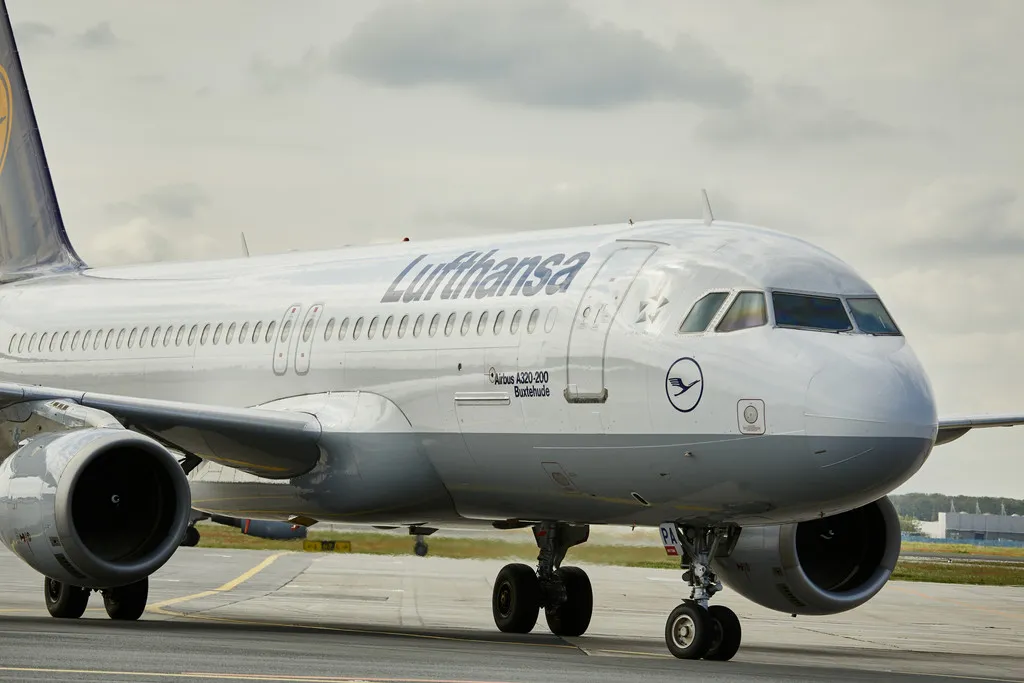
Lufthansa refunds reach a massive €3 billion
Oct 05, 2020

Lufthansa has announced that it has issued refunds totaling approximately €3 billion to passengers affected by flight cancellations and disruptions, primarily due to the COVID-19 pandemic. This significant sum reflects the airline's commitment to customer service and adherence to regulations regarding ticket refunds. The financial burden of these refunds highlights the ongoing challenges faced by the airline industry as it navigates recovery from the pandemic's impact. Despite the vast amount refunded, Lufthansa aims to restore passenger confidence and enhance its service offerings as travel demand gradually rebounds. The airline continues to adapt its operations in response to evolving market conditions.
The airline industry has faced unprecedented challenges in recent years, and Lufthansa, one of the largest carriers in Europe, is no exception. With the ongoing impact of the COVID-19 pandemic, the airline has had to navigate numerous hurdles, including a significant number of flight cancellations and changes. This situation has led to a staggering amount of refunds, which have now reached a massive $3 billion. This article explores the implications of these refunds for both Lufthansa and its customers, as well as the broader context of the airline industry.
The Scale of Lufthansa Refunds
The $3 billion in refunds represents one of the largest sums ever handled by an airline. As travelers faced lockdowns and travel bans, many were forced to cancel or change their travel plans, prompting a wave of refund requests. Lufthansa's commitment to processing these refunds has showcased the airline's efforts to maintain customer trust during these challenging times.
To put this figure into perspective, consider the following table that illustrates the breakdown of refund requests over the past two years:
| Year | Refund Amount ($ billion) | No. of Refunds Processed |
|---|---|---|
| 2021 | 1.5 | 5 million |
| 2022 | 1.5 | 5 million |
Customer Experience and Expectations
The surge in refund requests has inevitably affected customer experience. Many travelers have reported delays in receiving their refunds, leading to frustration and dissatisfaction. Lufthansa has acknowledged these challenges and has implemented measures to expedite the refund process. However, the sheer volume of requests has made it difficult for the airline to meet customer expectations consistently.
Key "customer concerns" regarding refunds include:
- Length of time to process refunds
- Lack of communication regarding refund status
- Confusion over eligibility for refunds versus vouchers
Lufthansa's Financial Implications
While the $3 billion in refunds is a substantial amount, it is essential to examine its impact on Lufthansa's overall financial health. The airline has experienced significant losses during the pandemic, and the refund situation complicates its recovery efforts.
Despite the challenges, Lufthansa has taken steps to stabilize its finances, including:
- Securing government aid and loans
- Implementing cost-cutting measures
- Focusing on operational efficiency
However, the ongoing need to process refunds continues to strain resources, making it crucial for the airline to balance customer satisfaction with financial sustainability.
Long-Term Changes in the Airline Industry
The massive refund amounts are not just a challenge for Lufthansa but indicate a broader trend within the airline industry. As consumer behavior shifts and expectations evolve, airlines must adapt to new realities:
Some anticipated changes include:
- Enhanced "customer service" capabilities to manage large volumes of inquiries
- More flexible ticketing policies to accommodate changing travel plans
- Investment in technology to streamline the refund process
Impact on Future Bookings
The experience surrounding refunds has influenced traveler confidence. Many potential passengers are reconsidering their travel plans based on previous experiences with refunds. Airlines, including Lufthansa, must work hard to regain trust and encourage future bookings. This effort could involve offering more transparent policies and ensuring quick responses to customer inquiries.
Conclusion
The $3 billion in refunds is a significant milestone for Lufthansa, highlighting the challenges faced by the airline and the industry as a whole. While the airline has made strides in processing these refunds, it must continue to improve its customer service and adapt to the changing landscape of travel. By focusing on customer satisfaction and operational efficiency, Lufthansa can better position itself for recovery and future growth in a post-pandemic world.
As travelers look ahead, the hope is that airlines will learn from this experience and implement changes that lead to a more resilient and customer-friendly travel experience. The future of air travel will depend on how well airlines can navigate these challenges and embrace the shifts in consumer expectations.
Related Articles

Explore Thailand: The Best Islands to Visit for Paradise, Adventure, and Relaxation

The Ultimate Guide to the Best Islands in Thailand for Your Next Getaway

Do babies need passports? How to get a passport for a newborn

How to get a U.S. passport fast: here’s how to expedite the process

What is Mobile Passport Control: 5 reasons why you should use it

SENTRI vs. Global Entry: A detailed guide

Do you need a passport to go to the Bahamas? Let’s find out

Do you need a passport to go to Mexico? A detailed guide

Do you need a passport to go to Canada? We got the answer

Do You Need a Passport for a Cruise: An Essential Travel Guide

Booster Seat Requirements: All the Rules to Follow in Your Rental Car

What Are the World’s Most Powerful Passports, and How Does Yours Rank?

How to Take a Passport Photo at Home: A Helpful Guide

You've got to have heart! Southwest's new livery

Your opinion: Should water be free on low cost carriers?

Young women bolder than guys as solo travellers
